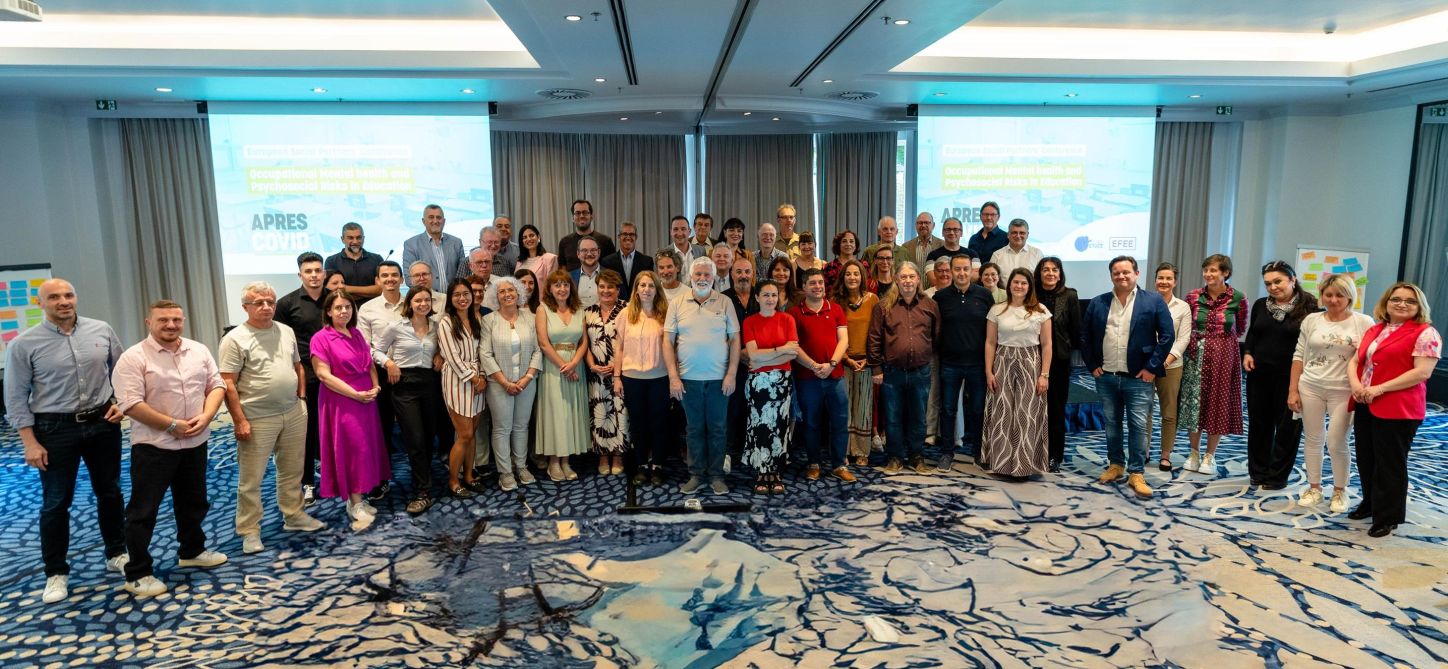
European Social Partners Unite to Promote Mental Health and Tackle Psychosocial Risks in Education in Final Conference of APRES COVID project
On 17–18 June 2025, education trade unions and employers came together for the final conference of the APRES COVID project, co-organised by ETUCE and EFEE. Under the theme “Occupational Mental Health and Psychosocial Risks in Education”, the two-day event brought together education stakeholders, researchers, EU policymakers, and educators to explore how social dialogue can drive systemic improvements in the working conditions and mental health of teachers, academics and education staff at all level of education.
Jelmer Evers, ETUCE Director, and Paddy Lavelle, EFEE Vice-President, opened the conference by emphasising the relevance of psychosocial risks in the joint work of European social dialogue in education amid growing societal and classroom complexities and increasing expectations on the education sector and educators. The conference provided a platform to share research insights, national practices, and joint strategies to ensure safe, supportive, and healthy educational environments.
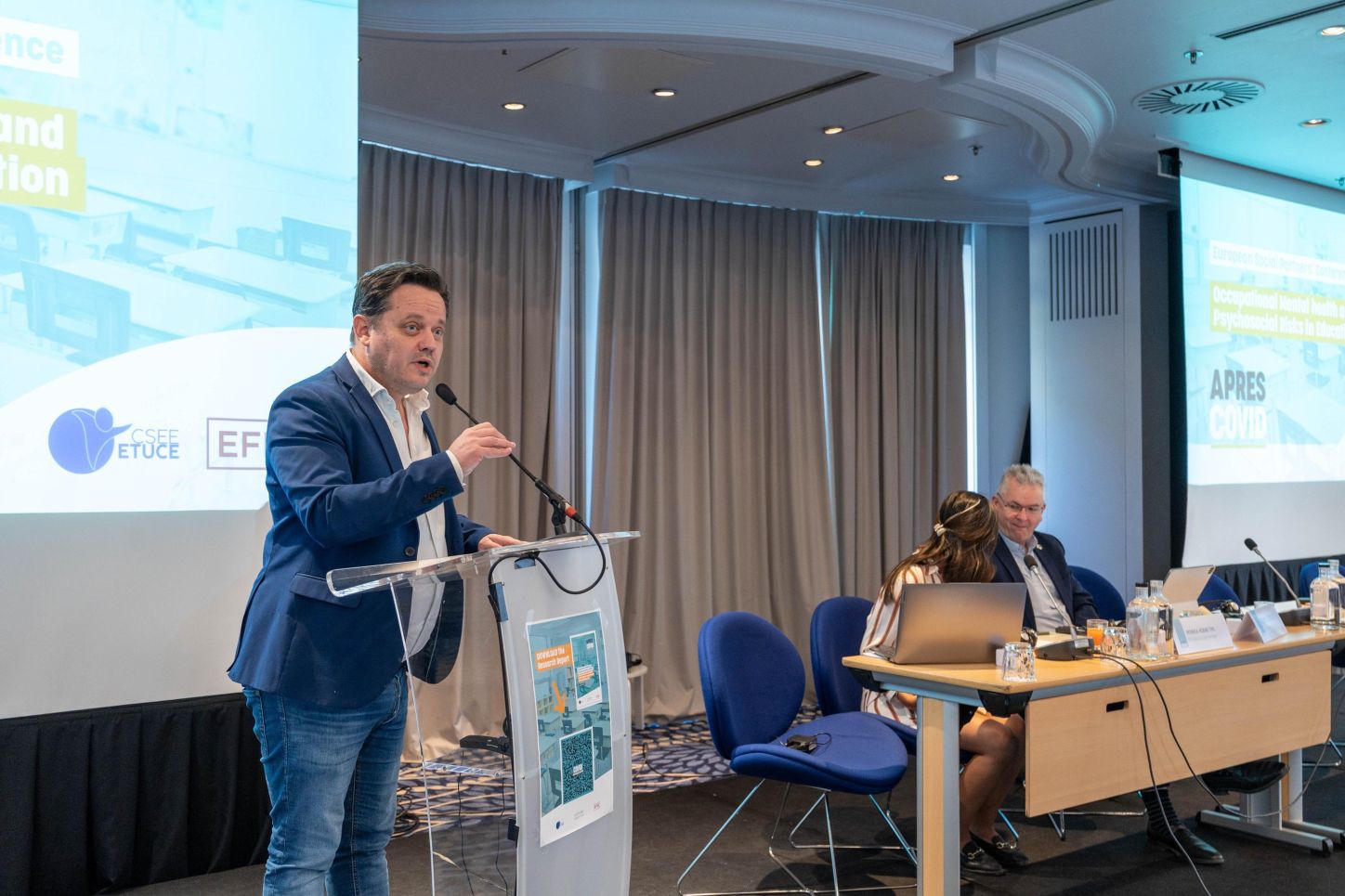
Among the highlights was the presentation of draft Revised Joint Guidelines on Preventing and Managing Psychosocial Risks in Education, developed jointly by ETUCE and EFEE. These Guidelines are now subject to a two-month consultation process among member organisations of both social partners, fostering collective ownership and dialogue on how best to implement preventive measures across education systems. National case studies from ETUCE and EFEE member organisations in Spain, Romania, Montenegro, and Malta illustrated innovative approaches to addressing psychosocial risks through social dialogue and institutional support.
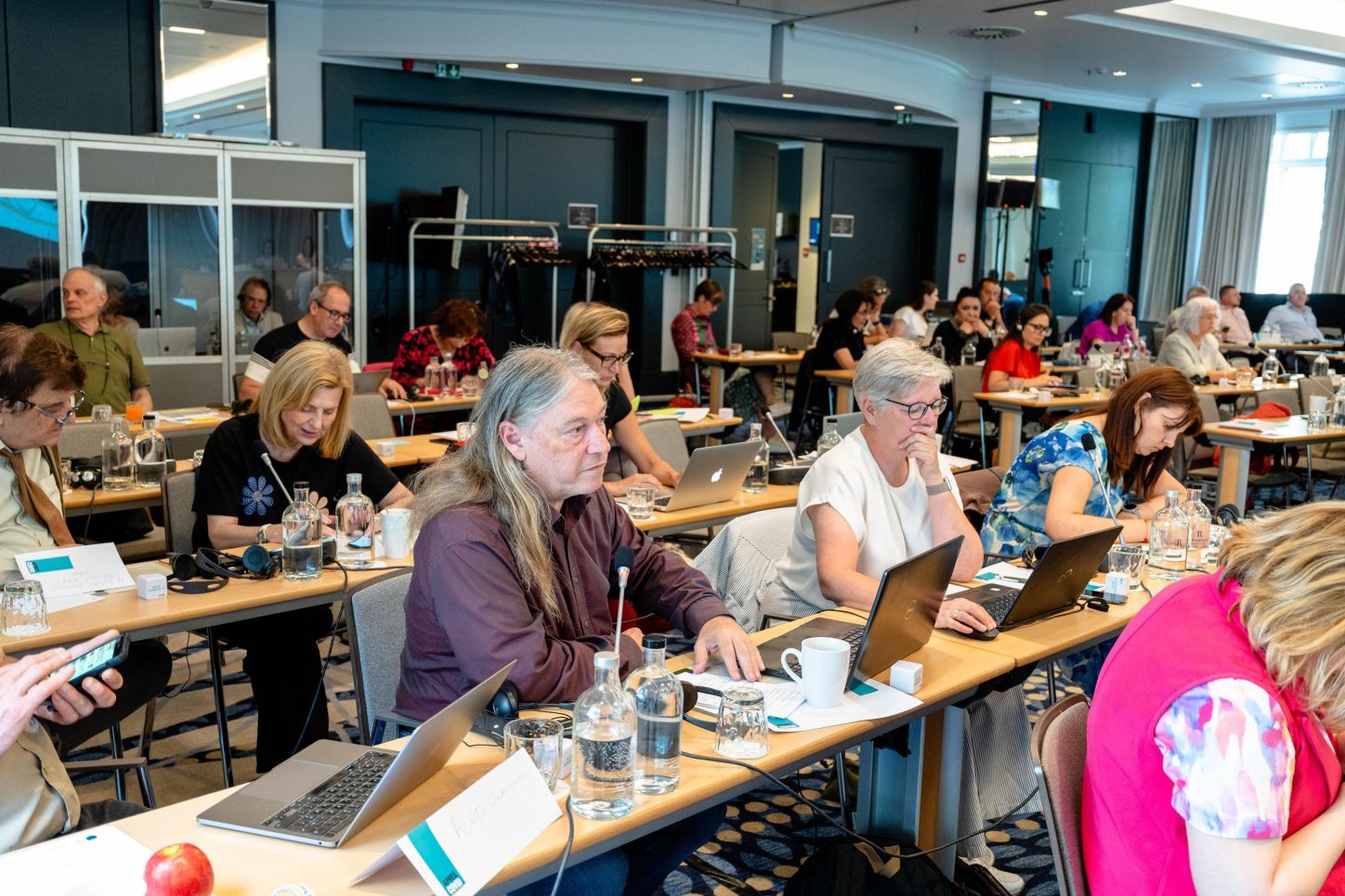
Throughout the two-day event, participants examined the interplay between working conditions and occupational well-being, the implications of digitalisation and AI, and strategies to combat violence and harassment in educational settings. Key insights were provided by Aleksandra Morozovaitė from Visionary Analytics, who presented findings from the research report Occupational well-being in European education systems, launched at the Conference.
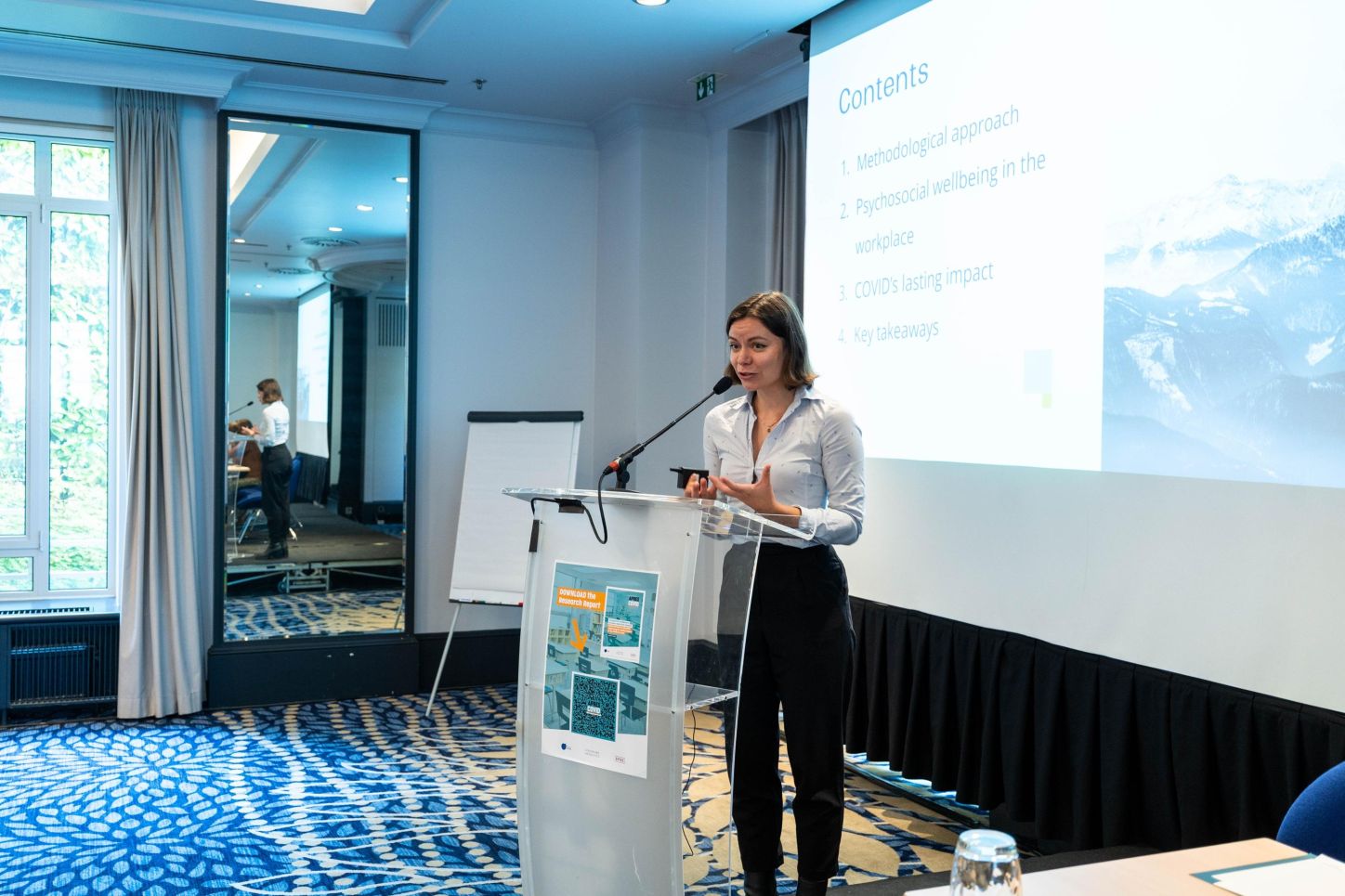
Dr. Ulrike Bollmann, educational scientist and expert in mainstreaming occupational safety and health into education, presented a teacher-centred perspective on the risks and opportunities of artificial intelligence, underscoring the need to place educators' safety and health at the core of digital innovation in schools. Prof. Peter Paulus presented the “Good Healthy School” model, underlining the importance of considering health as input factor in education, rather than and outcome product.
An inspiring keynote speech by Prof. João Carlos Major, academic and clinical psychologist, explored the long-term emotional impact of the pandemic on teachers. He called for a transformative approach to teacher mental health, framing educators as key symbolic mediators in society, whose well-being is essential to social resilience and cohesion.
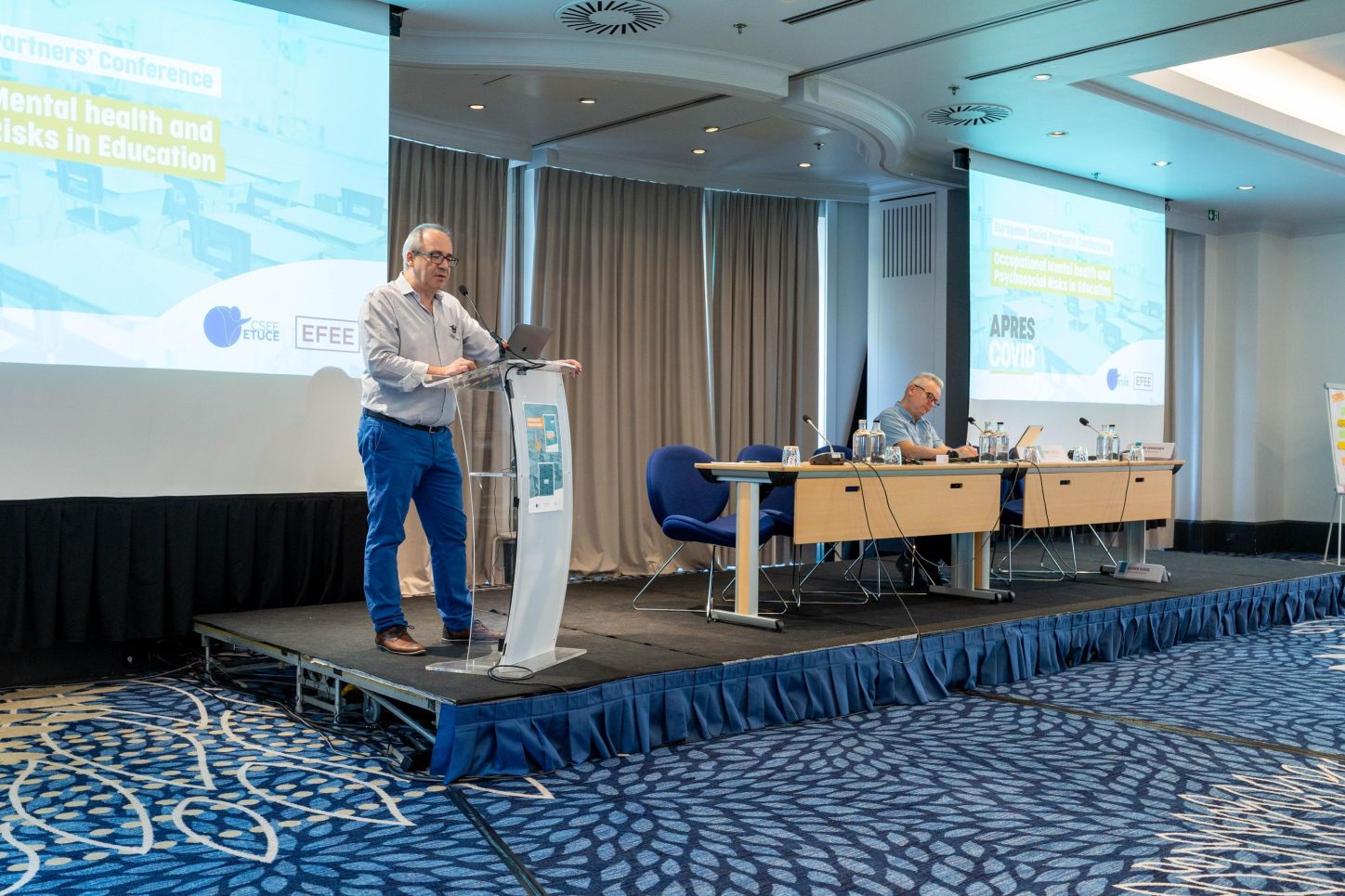
The conference concluded with a forward-looking panel discussion, reaffirming the commitment of the European social partners to continue advocating for decent, healthy, and sustainable working environments in education.
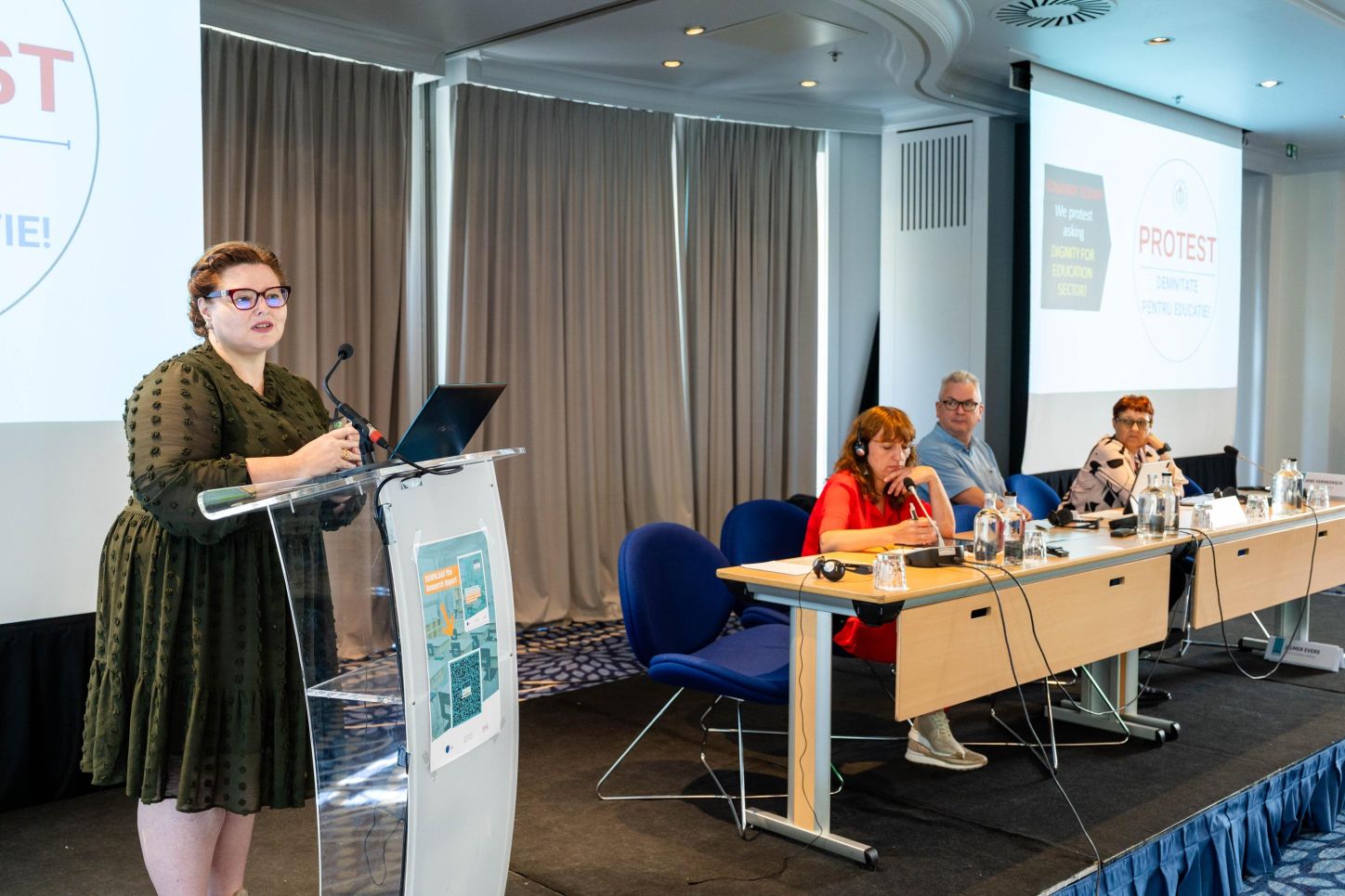
The conference marked not only the conclusion of the APRES COVID project, but also a new starting point for continued cooperation between the European social partners. Building on the outcomes of the project and the strong engagement of members, ETUCE and EFEE will explore further joint activities to deepen their collaboration on preventing and managing psychosocial risks in education.
Know more:
